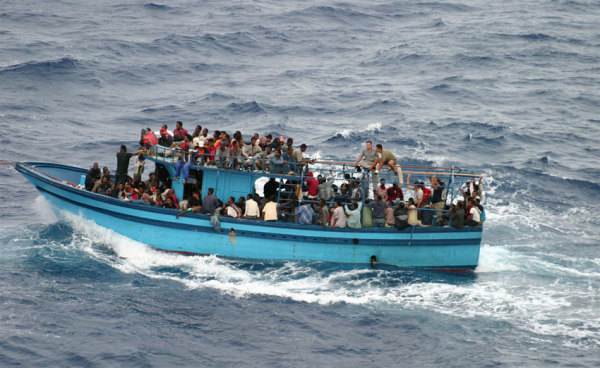In the Netherlands, assisting migrants living on the streets is not a matter of charity but rather an obligation of the Government, a group of United Nations human rights experts on 16 December 2014 said as they urged Dutch authorities to immediately provide irregular migrants with “bed, bath and bread”.
As it stands, the Netherlands refuses to give emergency food, clothing, and shelter (popularly called “bed, bath and bread” in the country), despite repeated disapproval by international and regional human rights bodies.*
Central Government Denies Appeal to Help Municipalities
Recently, the Dutch central Government denied an appeal for help from over 60 local municipalities for 15 million euro in budget support to fulfil their responsibilities towards migrants in need during the coming winter months.
“In these dark days before Christmas, it is appalling that the Dutch Government will not even commit less than 0.01 per cent of its yearly budget to help people living in absolute misery and poverty,” the UN Special Rapporteur on extreme poverty, Philip Alston, said.
It Is About an International Obligation
Providing basic emergency assistance is a matter of international obligation, not of political expediency, said the UN Special Rapporteur on the human rights of migrants, François Crépeau.
“Politicians in the Netherlands have been trying to score political points at the expense of homeless irregular migrants in the national debate about immigration,” he added, warning that “human migration patterns will not change by letting migrants sleep on the streets.”
Currently, central authorities leave it up to municipalities and local charities, on an ad-hoc basis, to decide whether or not to provide assistance to irregular migrants who live on the streets.
“A number of municipalities want to provide emergency housing for this population. The central government must provide the means for municipalities to do so. Forcing the most vulnerable people into homelessness during the harshness of winter is particularly egregious,” said the UN Special Rapporteur on the right to adequate housing, Leilani Farha.
Emergency Services Must Be Made Available to Migrants
“Emergency services such as homeless shelters, and adequate housing alternatives, must be made available to migrants, regardless of their legal status in the country,” Farha said.
The European Committee of Social Rights, a body that oversees the European Social Charter, recently decided in two separate cases that the Netherlands is violating the right to emergency assistance of adult homeless irregular migrants.
The UN Special Rapporteurs are part of what is known as the Special Procedures of the Human Rights Council. They are independent from any government or organization and serve in their individual capacity. (*Source: UN).
Read also:
Immigrants in Europe Struggle to Find Decent Work Amid Looming Economic Crises
UN Concerned over Spain’s Bid to Legalize Push-backs of Migrants
Rescuing Migrants in the Sea — Tunisian Fishermen Unlikely Heroes
“Media Reporting on Migration Rarely Includes Voices of Migrants”
Two Main Routes of Smuggling of Migrants Generate $7 Billion a Year to Criminal Groups
Greece Must Improve Detention Conditions for Migrants – UN Experts
Tracing Dead Migrants in Europe
Rights Groups Condemn Australia’s Offshore ‘Processing’ of Migrants










